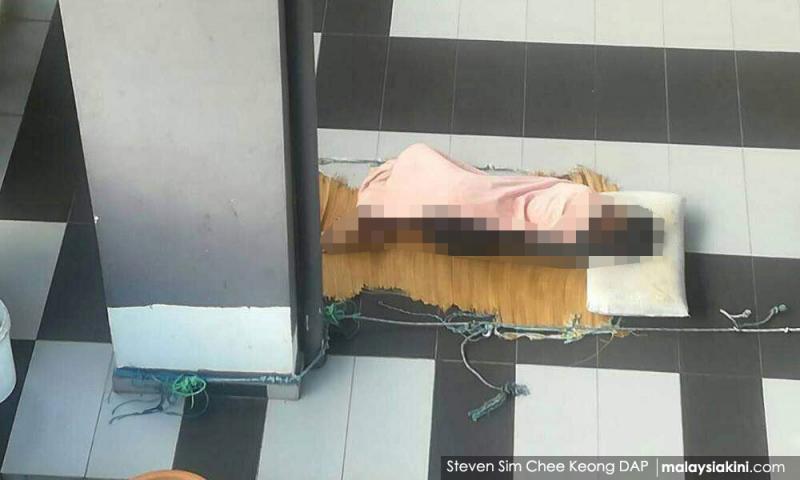
Indonesia mulls civil suit against employer acquitted of Adelina’s murder
The Indonesian embassy in Malaysia is already in discussions with Jakarta to file a civil suit against Ambika MA Shanmugam, 67, who was acquitted at the Federal Court yesterday, of murdering her domestic worker, Adelina Lisao, in 2018.
The domestic worker from the East Nusa Tenggara islands in Indonesia was 28 years old when she died at the Bukit Mertajam Hospital after succumbing to severe infections on her limbs and wounds on her face and head.
Indonesian Ambassador to Malaysia Hermono said while his government was trying to manage public anger over this decision, he expressed disappointment that the case was not given enough seriousness.
Case derailed mid-trial
Referring to the prosecution’s request for discharge not amounting to an acquittal (DNAA) mid-trial at the Penang High Court, Hermono said no legal explanation was ever given for this request.
Murder cases in Malaysia are tried first at the High Court and the trial against the Ambika was mid-way as the prosecution had already called three witnesses.
Among the prosecution’s witnesses who had already testified was a science officer from the Chemistry Department.
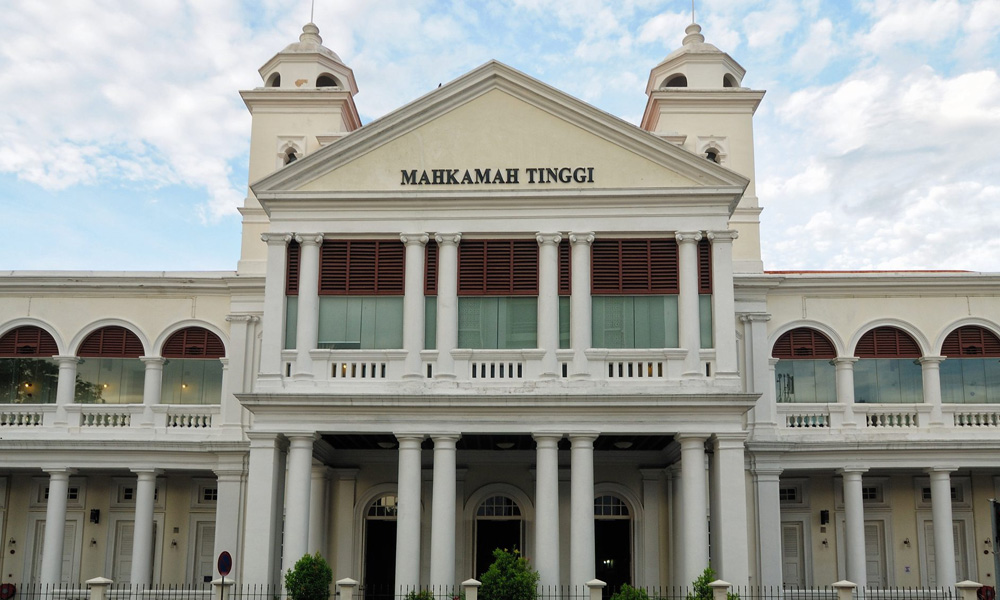
It was at this stage that the deputy public prosecutor requested DNAA but was unable to provide a valid reason for her request.
On April 18, 2019, Penang High Court judge Akhtar Tahir, in his judgment, said the deputy public prosecutor did not offer reasonable grounds for requesting a DNAA.
He explained that the request for DNAA could have been taken into consideration had the prosecution provided reasonable grounds.
However, in the absence of any reason whatsoever, Tahir said he agreed with the defence counsel’s request for an acquittal and discharge.
Following the prosecution’s request for DNAA, the defence urged the court to grant an acquittal, citing the accused’s age and failing health.
The defence counsel had pointed out that under Section 254 (3) of the Criminal Procedure Code, it was clear that the court had in certain circumstances the discretion to order an acquittal instead of DNAA.
In explaining his decision, Tahir said DNAA left the charge hanging over her (Ambika’s) head and the prosecution could revisit the charge at any time, adding that it was not fair on the accused, especially when there was no reason given.
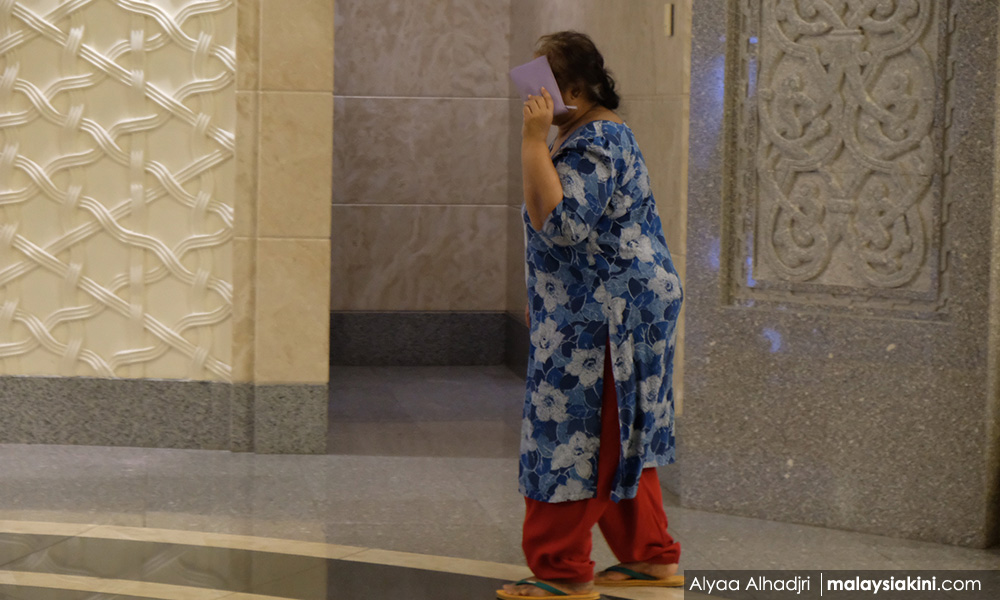
Ambika MA Shanmugam
It was learned that a representation to the attorney-general was made by the respondent’s counsel on April 4, 2019, for the charges against Ambika to be dropped.
Subsequently, the Solicitor General III, on behalf of the Attorney-General’s Chambers (AGC), by letter dated April 16, 2019, had accepted the representation and agreed not to proceed with the prosecution of the respondent.
Hence, the decision not to proceed with the prosecution of the respondent was made two days before the decision by the trial judge to acquit the respondent on April 18, 2019.
The subsequent appeals to this decision at the Court of Appeal and the Federal Court have been against the discharge amounting to an acquittal (DAA) order made by the High Court judge and not the facts of the case.
Yesterday, deputy public prosecutor Mohd Dusuki Mokhtar told Malaysiakini that the three-member panel of Federal Court Judges unanimously ruled against the prosecution’s appeal as there was no available error committed by the Court of Appeal.
“Our appeal to get the DNAA was dismissed by the Federal Court,” he said.
A matter of humanity
Ambassador Hermono, however, said the decision would be hard for Indonesians to swallow.
“The Indonesian people don’t understand the details of court proceedings here. What they know is that no one was held responsible for her death.
“People back home are upset and angry and we are trying to manage their anger with very little to say because we never got an explanation.
“She was living and working in the home of the employer for four years and even when her body was infected with bacteria, no one looked after her and she died,” Hermono said.
It was learned that a representation to the attorney-general was made by the respondent’s counsel on April 4, 2019, for the charges against Ambika to be dropped.
Subsequently, the Solicitor General III, on behalf of the Attorney-General’s Chambers (AGC), by letter dated April 16, 2019, had accepted the representation and agreed not to proceed with the prosecution of the respondent.
Hence, the decision not to proceed with the prosecution of the respondent was made two days before the decision by the trial judge to acquit the respondent on April 18, 2019.
The subsequent appeals to this decision at the Court of Appeal and the Federal Court have been against the discharge amounting to an acquittal (DAA) order made by the High Court judge and not the facts of the case.
Yesterday, deputy public prosecutor Mohd Dusuki Mokhtar told Malaysiakini that the three-member panel of Federal Court Judges unanimously ruled against the prosecution’s appeal as there was no available error committed by the Court of Appeal.
“Our appeal to get the DNAA was dismissed by the Federal Court,” he said.
A matter of humanity
Ambassador Hermono, however, said the decision would be hard for Indonesians to swallow.
“The Indonesian people don’t understand the details of court proceedings here. What they know is that no one was held responsible for her death.
“People back home are upset and angry and we are trying to manage their anger with very little to say because we never got an explanation.
“She was living and working in the home of the employer for four years and even when her body was infected with bacteria, no one looked after her and she died,” Hermono said.
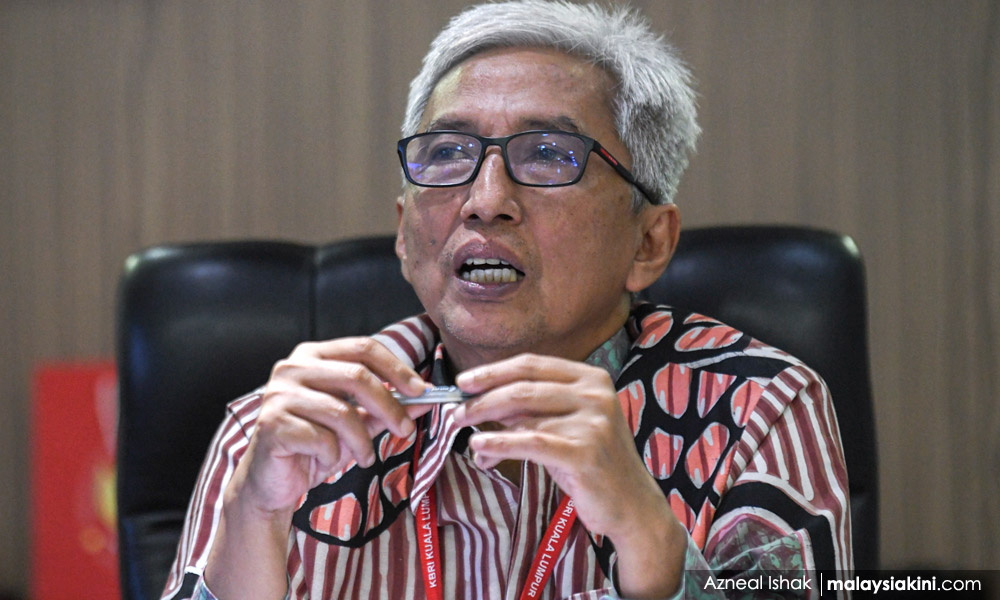
Indonesian Ambassador to Malaysia Hermono
He said the public may construe this as a message that there was limited or no protection for undocumented migrant workers in Malaysia, adding that such abuse cases of domestic workers were rife.
“Just last night, we rescued an Indonesian domestic worker from her employer. She has lost 40kg owing to lack of food and she was treated like a slave,” he shared.
Hermono added that Indonesians were less interested in the severity of the sentence and more interested in someone being held responsible for the death of Adelina.
“It’s a matter of humanity,” he reasoned.
‘Culture of impunity’
Adelina’s death shook the nation as well as Indonesians back home when photographs of the domestic worker sleeping on the porch with the family dog went viral in February 2018.
Among those who had vowed justice were Batang Lupar MP Rohani Abdul Karim, who was the women, family and community development minister under the BN regime in 2018.
Two days after Adelina’s death, Rohani vowed that appropriate action would be taken against her employer and that the government would not tolerate inhumane and degrading conduct.
Expressing sadness, Rohani said Adelina’s right to be safe and protected at all times was enshrined in the Federal Constitution, regardless of nationality.
Bukit Mertajam MP Steven Sim, who acted on a tip-off and visited the house and was responsible for Adeline being rushed to the hospital by the police, was distraught over the case.
“If someone can be subjected to workplace bullying, violence and even be tortured to death here in Malaysia, what makes us think the next person will not be a Malaysian?”
He said the public may construe this as a message that there was limited or no protection for undocumented migrant workers in Malaysia, adding that such abuse cases of domestic workers were rife.
“Just last night, we rescued an Indonesian domestic worker from her employer. She has lost 40kg owing to lack of food and she was treated like a slave,” he shared.
Hermono added that Indonesians were less interested in the severity of the sentence and more interested in someone being held responsible for the death of Adelina.
“It’s a matter of humanity,” he reasoned.
‘Culture of impunity’
Adelina’s death shook the nation as well as Indonesians back home when photographs of the domestic worker sleeping on the porch with the family dog went viral in February 2018.
Among those who had vowed justice were Batang Lupar MP Rohani Abdul Karim, who was the women, family and community development minister under the BN regime in 2018.
Two days after Adelina’s death, Rohani vowed that appropriate action would be taken against her employer and that the government would not tolerate inhumane and degrading conduct.
Expressing sadness, Rohani said Adelina’s right to be safe and protected at all times was enshrined in the Federal Constitution, regardless of nationality.
Bukit Mertajam MP Steven Sim, who acted on a tip-off and visited the house and was responsible for Adeline being rushed to the hospital by the police, was distraught over the case.
“If someone can be subjected to workplace bullying, violence and even be tortured to death here in Malaysia, what makes us think the next person will not be a Malaysian?”
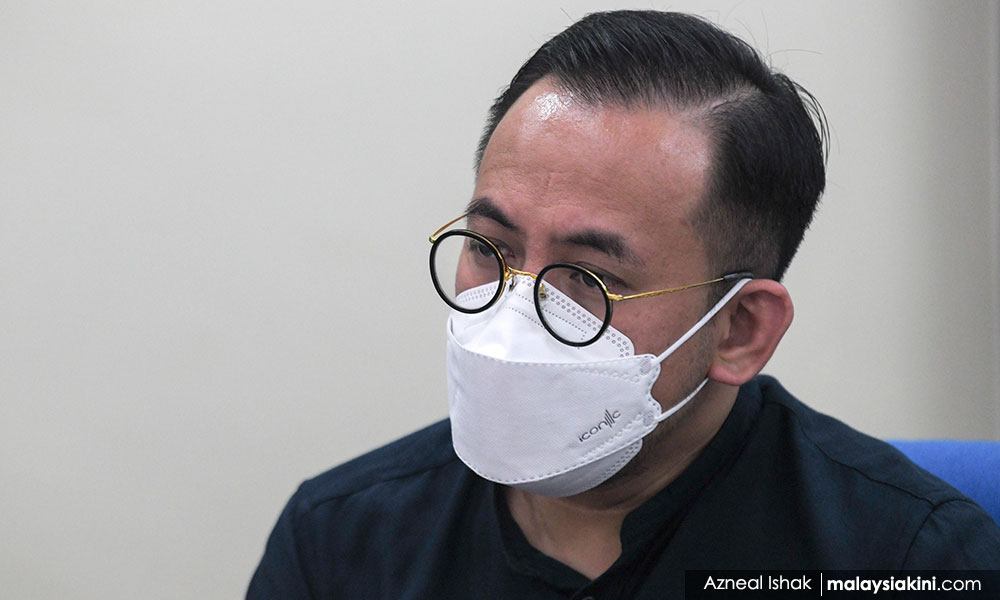
Bukit Mertajam MP Steven Sim
Sim was proven right when 28-year-old Nur Afiah Daeng Danim was found dead on the floor of the apartment she worked at in Kota Kinabalu last December. Her employers have claimed trial for murder.
The Malaysian public, too, had voiced their call for justice following Ambika’s acquittal at the High Court, with a petition signed by 28,950 people titled “Why is her abuser free? Malaysians demand “JusticeForAdelina”, which was handed to the AGC.
Yesterday, after the Federal Court dismissed the prosecution’s appeal against the acquittal, migrant rights group Tenaganita’s executive director Glorene A Das told Malaysiakini that the prosecution had failed
“Unfortunately, this means we continue to cultivate a culture of impunity for perpetrators among employers of domestic workers.
“We will continue to seek justice for Adelina,” she added.
Sim was proven right when 28-year-old Nur Afiah Daeng Danim was found dead on the floor of the apartment she worked at in Kota Kinabalu last December. Her employers have claimed trial for murder.
The Malaysian public, too, had voiced their call for justice following Ambika’s acquittal at the High Court, with a petition signed by 28,950 people titled “Why is her abuser free? Malaysians demand “JusticeForAdelina”, which was handed to the AGC.
Yesterday, after the Federal Court dismissed the prosecution’s appeal against the acquittal, migrant rights group Tenaganita’s executive director Glorene A Das told Malaysiakini that the prosecution had failed
“Unfortunately, this means we continue to cultivate a culture of impunity for perpetrators among employers of domestic workers.
“We will continue to seek justice for Adelina,” she added.
Something must be drastically wrong for the employer to get away without any punishment.
ReplyDeleteThe Bar Council should be at the forefront to demand the reason why the prosecution requested for the DNAA without offering a reason midway through the trial in the first instance.
Or were there hidden hands manipulating events behind the scene?